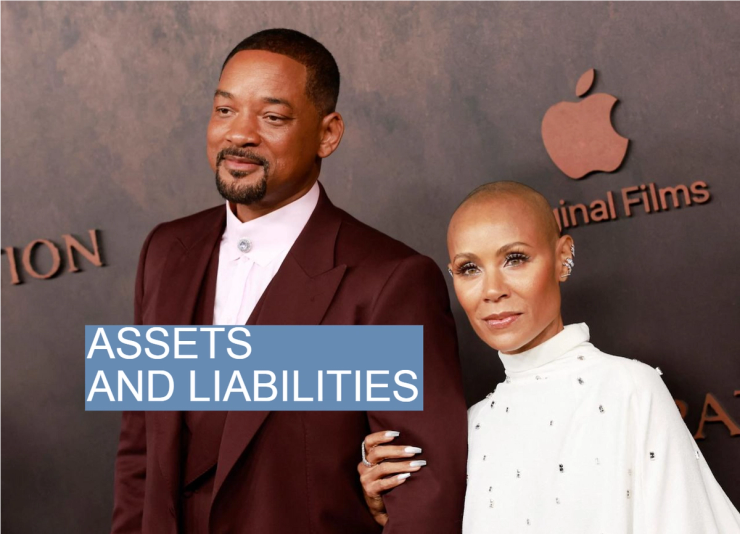The Scoop
The fall of 2021 was the perfect time for Will Smith and Jada Pinkett Smith to sell their media company, Westbrook. It was six months after Reese Witherspoon extracted a record $1 billion for her production company and book club, Hello Sunshine, and just a few months before The Slap.
And the couple were deep in talks with Candle Media, Hello Sunshine’s buyer, about what they thought should be a second billion-dollar deal for Westbrook, people familiar with the conversations said.
They didn’t just have Will Smith’s giant brand; Jada Pinkett Smith had pulled off the only bona fide hit on the Facebook Watch Originals platform, Red Table Talk. Candle, backed by Blackstone and led by two former Disney heirs apparent, valued the company closer to $600 million — what the Smiths saw as an insulting figure — and so the deal fizzled. Candle pitched in a mere $60 million for 10% of the company, what was seen in that moment’s bubbly economics as a kind of relationship-saving breakup fee.
In fact, the Smiths sat in the front row at the Dolby Theater on March 27, 2022, as the proprietors of a promising new business: Westbrook was on track to generate some $170 million in revenue from various entertainment production deals, including with the show Bel-Air, the movie King Richard, and a variety of series for Disney+, Apple TV, Snapchat, Netflix and Hulu. It had employed about 100 people, mostly in its Calabasas offices, and had begun building up its international business with the acquisition of the German media company Telepool.
Then, on Oscars Night, Smith famously stormed onstage in front of millions of viewers and slapped comedian Chris Rock over a joke about Pinkett Smith. What happened next, according to three people directly familiar with the company and others who worked with Westbrook, represents the worst-case scenario for a new Hollywood business model, in which big stars seek to transform themselves from talent into businesses.
Two sources with knowledge of the company’s recent financial situation told Semafor that since the incident in March 2022, Westbrook has struggled to land major deals with the streamers and other entertainment giants, forcing it to make steep cuts.
Revenue dipped last year to $100 million, Semafor has learned, forcing the company to lay off half of its employees, including much of the staff it brought on in 2021. Many of its partners also decided not to renew their existing deals with Westbrook. After Meta decided not to renew Red Table Talk, Westbrook told reporters that it was fielding inquiries for a new home for the show. One person familiar with the talks said the most serious interest came from a relatively obscure streaming platform called Fubo TV, but the property remains shelved. A Westbrook spokesperson told Semafor that Westbrook is having active conversations with several distributors for the show and has 2 current offers.
Westbrook isn’t the only production company to struggle in 2023, amid strikes and the streaming crash, and some critics are raising larger questions about whether transforming a movie star into a kind of super-producer will actually reverse the gradual contraction of the entertainment industry in the face of declining linear television revenues. But Westbrook also illustrates another danger of that model — the risks and reality distortion fields that come with celebrity.
In particular, the Smiths and Westbrook’s CEO and co-founder, Kosaku Yada, initially dismissed colleagues’ concerns that Smith’s attack on Rock would affect their business. Yada, two people familiar with the conversations said, insisted the star’s image would bounce back quickly. And as business began to tail off, Yada was slow to seek additional funding for the business, agreeing with other company leaders who felt that they shouldn’t negotiate for new investment from a position of weakness.
Some of the company’s executives also kept spending money like they worked for a richly-funded star vehicle, not a small company in a deep crisis.
One source with knowledge told Semafor that Yada and another senior executive at the company also each received $10 million loans from the company after The Slap. Yada also gave himself a $2 million bonus that year, which was approved by the company’s board. His colleagues were bewildered to discover that the CEO had used the new cash to fly on private jets and buy a horse, and had relocated for several months from Los Angeles to the Bahamas.
The company now seems to be scaling back its large ambitions. CFO Kevin McDonald quietly departed Westbrook late last year with little warning to staff, though the company quickly brought in a replacement. Candle, for its part, has seemed to take a step back from Westbrook. Candle has never had operational control or Westbrook board seats.
In this article:
Max’s view
Westbrook exists largely as a studio to create content around the Smiths, which has allowed it to succeed when the Smiths’ brand has been popular, and it could have major hits surrounding upcoming movies like Will Smith’s I Am Legend 2. But the fortunes of companies like Westbrook can quickly turn if their stars become engulfed in controversy. While the company has produced ads and shows around some other high-profile figures, including Shaq and Ryan Reynolds, a large number of its projects revolve around members of the Smith family.
Questionable decisions by leadership and the impact of The Slap created many of Westbrook’s problems. But others in the entertainment industry believe that the company’s fate also shows that many celebrity-driven media and production studios need to be wary that the power of one family or individual’s brand is not enough to power a major multi-pronged contemporary entertainment business.
Witherspoon’s Hello Sunshine reported weaker than expected revenue, which it has largely blamed on the impact of the writers and actors strikes last year, in addition to the decline in spending by the streamers. Over the next two years, her company is attempting to avoid some of the issues that have plagued Westbrook. It’s continuing to attempt to diversify its business on projects that do not feature Witherspoon, including building out its unscripted media business.
Room for Disagreement
A spokesperson for Westbrook rejected the premise of the piece and framing of several of the facts. The spokesperson disputed the idea that the departure of the company’s former CFO was abrupt, noting that it came after a six month search. Westbrook also pointed to several examples of deals the media company has inked since The Slap, including the action comedy Regulators, an upcoming Peacock series Queen of Flow, and a Paramount film titled Brilliance (Will Smith does not appear on screen in any of the projects. He was at one point slated to star in Regulators, but instead is a producer.)
Notable
- Candle Media struggled in 2023 amid the streaming pullback and impact of the various strikes. The company asked lenders late last year to restructure some of its debt after recent acquisitions, including Hello Sunshine and the children’s content titan Cocomelon, failed to meet profit targets.
- Viewership data suggests that just having a celebrity attached to producing a project doesn’t necessarily move the needle for audiences.


